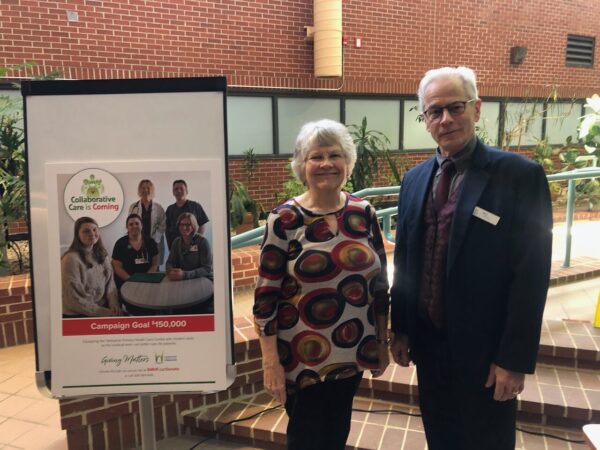Tantramar council passed its budget resolutions last week, setting the tax rates and general spending direction for 2025.
Council approved four new tax rates, which when combined with average property assessment increases around the region, will mean most properties will see increases in their tax bills in 2025, ranging from 4.4% to 15.4% on average.
Property owners won’t know their actual, individual tax bill amounts until property assessment notices are sent out in January, and tax bills are sent in the spring.

Tax rates in former local service districts (LSDs) will all go up by five cents per $100 of assessment. Rates in the former town of Sackville and village of Dorchester will go down slightly from 2024.
On a property assessed at $250,000 in 2024, tax bills will be going up on average between $169 and $375.

The biggest increase for 2025 will take place in the district with the lowest overall tax rate. Residents in the former Sackville Local Service District will see on average an increase of 15% on their tax bills. But despite the increase, the Sackville LSD continues to have the lowest property taxes in Tantramar.

The 5-cent rate increase for local service districts did not sit right with Councillor Barry Hicks, who kicked off council’s discussion last week. “I will be voting against the tax hike until I see Town Hall representing the LSDs, and some services for LSDs,” said Hicks on Thursday.
In earlier meetings Hicks had explained his position that if LSDs were to continue to see rate increases (as is the long term plan for formerly unincorporated areas) then they should see a corresponding increase in services. That’s in contrast to the message from treasurer Michael Beal, who has said that the intention of amalgamation was to have former LSD areas start paying for services they were in fact already receiving.
Mayor Andrew Black agreed with both Beal and Hicks on the issue.
“The five cent increase on the LSDs is unfortunate, but it is a direct result from amalgamation,” said Black, though he noted that “we need to kind of wash our hands of keeping laying the blame on the province.”
Black acknowledged that through amalgamation, “this is what the province has instituted as a process leading up to… parity, or somewhat close to parity, of taxation rates within municipalities like ours.” Beal has previously explained that the long term plan is for LSD rates to continue to go up until they reach a level that covers a share of the shared services covered in the municipal budget, such as the Civic Centre, parks and recreation, policing, fire, and garbage collection.
But Black says the idea of LSD residents paying more for existing services because the former town had been subsidizing them previously, is “a difficult one for people to understand.”
He suggested instead of simply saying “you’re paying for the rink now,” the municipality make an effort to provide additional services. “It’s tangible things I think that would help,” he said.
No allotment for housing, little for climate change
Councillors Michael Tower and Josh Goguen both suggested that former town and village rates should be going down more.
Tower said lower rates in the former incorporated areas would mean the LSD rates would catch up sooner rather than later, and remain lower in the end.
“We’ve had a fair increase in our assessment income, and for our departments not to live within a certain percentage, means that we’re becoming addicted to using what we can and throwing money into an account that can be used for projects that may not be the best of the municipality,” said Tower.
But in addition to his concern for overspending in the budget, Tower also felt some areas were being shortchanged. “I worry that we are not putting money, in a great amount at all, aside for climate change projects,” said Tower. He also agreed with Goguen and Black that money should be set aside for potential infrastructure projects needed to support non-profit housing developments like the Freshwinds Eco-Village Housing Cooperative.
Goguen pointed out that with federal and provincial funding, housing-related infrastructure projects could get up to 75% covered by other levels of government. “Where do we come up with that extra 25%,” asked Goguen, ”if we don’t have money allocated?”
Black said that budgeting to support housing projects by Freshwinds, the Westmorland Historical Society in Dorchester, or Sackville and Area Housing, is “really important.”
Beal said that although housing infrastructure projects are not budgeted, the municipality could mobilize for housing infrastructure projects in 2025 through its operating and capital reserves. But he recommended against adding those lines to the budget, because the municipality is not certain when the projects will materialize.
“If those things became a reality during 2025,” said Beal, the municipal share could come from council initiatives, from other projects that did not move forward, or from reserve funds.
Tantramar council has one more meeting scheduled for 2024: a regular council meeting on Tuesday, December 10 at 7pm.



















